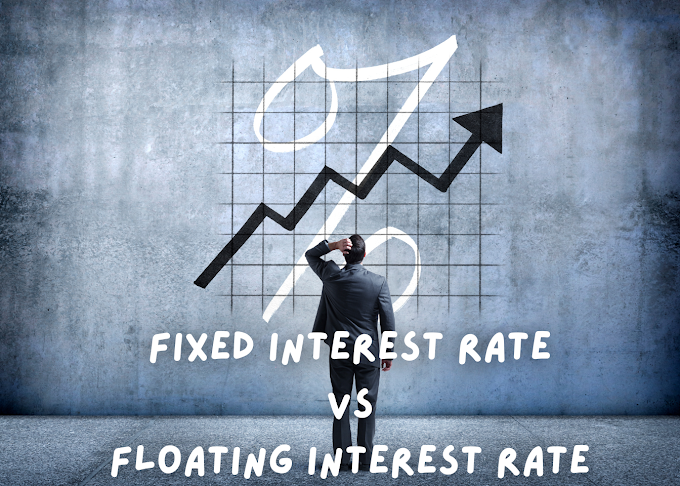
Fixed vs Floating Rate: While taking a home loan, we have to select one option from Fixed Rate and Floating Rate. Although both these options are connected to the interest rate, there is a lot of difference between them. In such a situation, in this article we will tell you about the difference between these two options along with their advantages and disadvantages.
Fixed vs Floating Rate: Everyone dreams of having their own house. Home loan plays an important role in realizing this dream. You can fulfill this dream through home loan. Whenever you go to a bank or financial institution to take a loan, you have to select one option from Fixed Rate and Floating Rate.
Which of these options given to pay interest in home loan should we select. We should take a decision only after knowing the advantages and disadvantages of both of them. In this article, we will tell you about the difference between these two (Fixed vs Floating Rate) along with the advantages and disadvantages.
Fixed Rate
Fixed rate means that the interest rate will remain the same for the entire tenure of the loan. There will be no change in the interest rate. Apart from this, EMI will also not change.
Understand it like this, if you have taken a home loan at the rate of 8.20 percent for 30 years in which the monthly EMI is Rs 22,000. In such a situation, you will have to pay an EMI of Rs 22,000 per month for 30 years, that is, there will be no change in EMI for 30 years.
You have to keep one thing in mind that many banks convert the fixed rate to floating rate after some time. You should first confirm the things related to this before taking a home loan.
Also Read- Upcoming Cars in September: These powerful cars will be launched in September 2024, know details
Floating Rate
In floating rate, the interest rate keeps changing. In this, the interest rate is aligned with the benchmark rates of the bank. In such a situation, whenever the Reserve Bank of India (RBI) makes any change in the Repo Rate, the interest rates of home loans change. With the change in interest rates, the EMI also changes. If the interest rate increases but you do not want to increase the EMI, then the loan period increases.
What are the advantages and disadvantages
- In fixed rate, the EMI of the loan remains fixed, due to which your money flow is not affected for a long time.
- In floating rate, the EMI of the loan can also increase due to the increase in the interest rate. This affects your savings and budget.
- In floating rate, there may be problems due to increase in the loan period or increase in EMI. On the other hand, it has no effect in fixed rate. However, even if there is a fall in the benchmark rate, its benefit is not available.
Related Articles:-
Upcoming Cars in September: These powerful cars will be launched in September 2024, know details
UPPSC Recruitment 2024: Notification issued for 38 Assistant Registrar vacancies, check details





